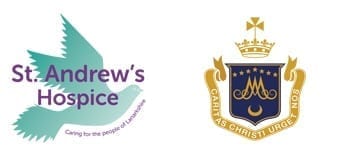Grieving allows us to heal, to remember with love rather than pain. It is a sorting process; letting go of the things that are gone and mourning for them while taking hold of the things that have become part of who you are and build again.
Grief affects different people in different ways and can cause intense emotional pain that is difficult to recover from. Grief encompasses a broad range of feelings and behaviours that are common after a loss.
Whether we experience it or not, grief accompanies changes in our lives. People can experience a variety of physical and emotional responses; ranging from sadness, anger, guilt, anxiety, loneliness, exhaustion and fatigue, relief, numbness, disbelief, confusion among many others.
St Andrew’s Hospice Bereavement Service is available to the community of Lanarkshire and is provided after a minimum of six months after bereavement. Our bereavement support team offers confidential support and counselling to people who have experienced a bereavement and are struggling to adjust to a new reality while coping with the pain of loss.
When you are bereaved you may experience feelings and thoughts that are difficult to deal with on your own. Being part of a Bereavement Group may help you to share how you feel and think in an empathic, non-judgmental, safe place with others who are also grieving.
The Bereavement Group at St Andrew’s Hospice aims to provide you with the opportunity to meet with others who have also experienced the pain of grief and loss and to support you to deal with difficult emotions so that you can adapt to the change brought about by bereavement and re-build your life.
Experiencing a bereavement can cause a broad range of grief reactions which are normal after such an experience. St. Andrew’s Hospice provides free bereavement counselling to the people of Lanarkshire who have experienced bereavement.
Our counsellors offer a safe and confidential place to talk about your feelings and concerns free from opinions or advice. Our counsellors will help you accept the reality of loss, enable you to work through the emotional pain experienced and help you to find ways of coping.
Our counsellors will listen to you without judgment and help you explore your thoughts and emotions. They may offer information, but they won’t tell you what you should think or do.
St Andrews Hospice provides support for children and young people experiencing grief and loss issues. This takes the form of a weekly group for children of primary age.
This activity based approach encourages the young person to participate and engage with a variety of different arts and crafts and games.
This can help the young person to start to build trust enabling them to process their grief and potentially understand it within the context of their own life situation.
The additional benefit of peer support and new friendships helps to dispel the feelings of alienation, of being different and aids healing.
The service is run by a counsellor and a team of trained volunteers.

